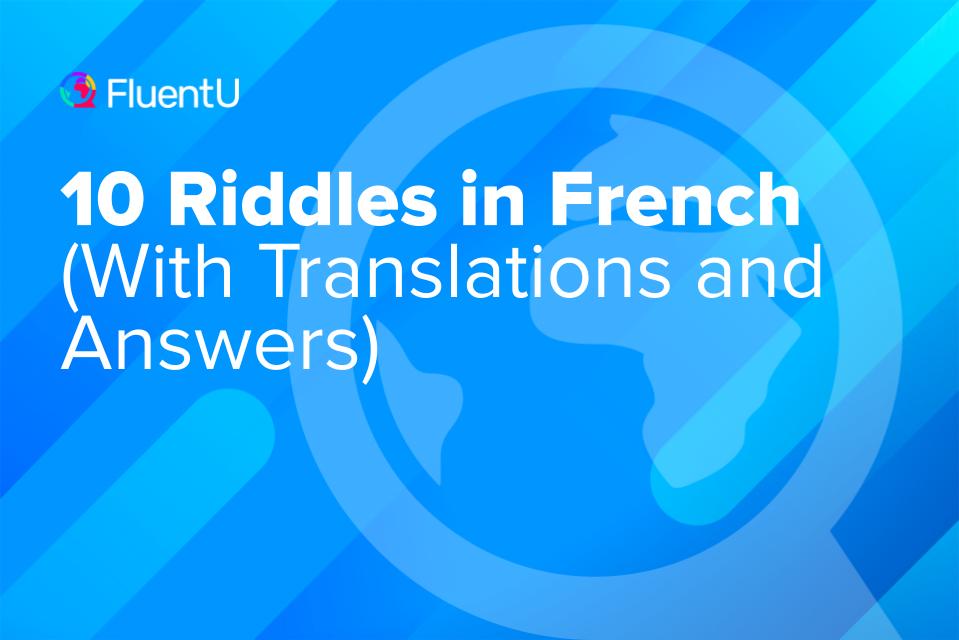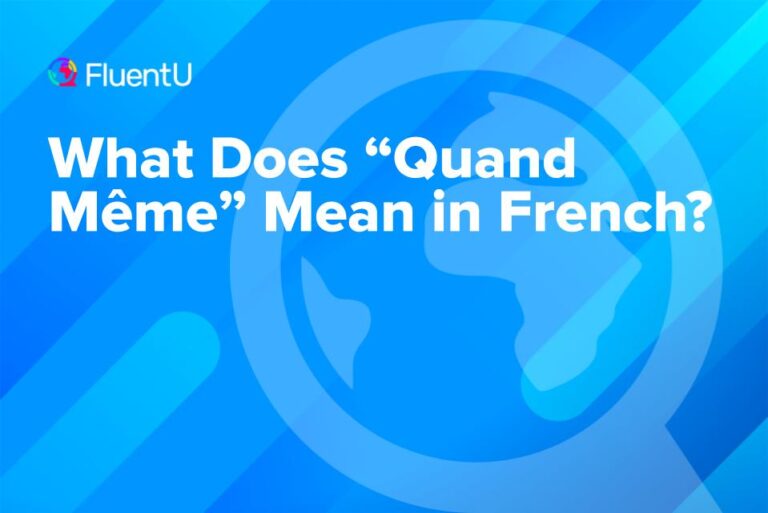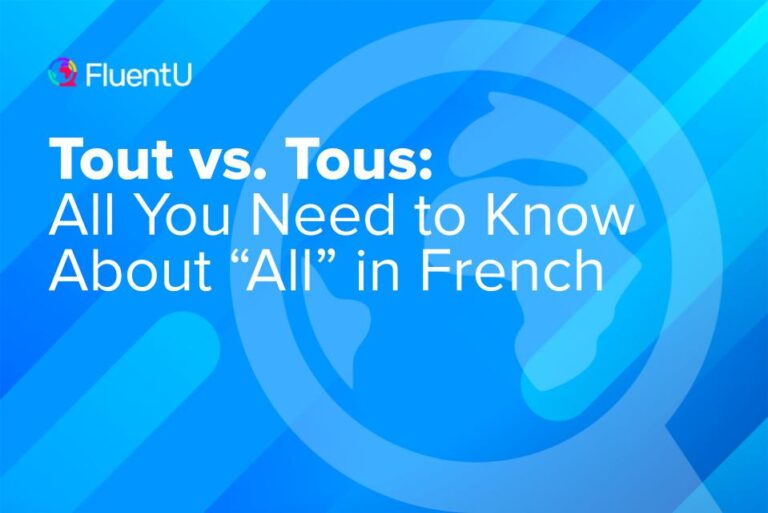10 Riddles in French (With Translations and Answers)

Riddles in the French language can help you in a myriad of ways. Simply put, practicing French using riddles is an excellent way to improve your language skills and prepare for a trip abroad.
In this guide, I’ll give you some examples of interesting French riddles along with their answers and translations.
Download: This blog post is available as a convenient and portable PDF that you can take anywhere. Click here to get a copy. (Download)
“Who Am I?” Riddles
The following riddles are styled as “Who am I?” riddles made famous by J.R.R. Tolkien’s battle of wits between Bilbo Baggins and Gollum in “The Hobbit” chapter entitled “Riddles in the Dark.”
Riddle 1
Always the first, never the last,
Nothing can finish without it
Because nothing can start without it.
What is it?
Answer 1
Le début (the beginning)
Riddle 2
J’ai un chapeau mais pas de tête.
J’ai un pied mais pas de jambe.
Qui suis-je?
I have a cap but no head.
I have a foot but no leg.
Who am I?
You’ll need to think about the French words for this one, as their English equivalents don’t really match up.
Answer 2
Un champignon (a mushroom)
Here, the answer makes sense only in French, as pied (foot) can also be used to refer to the stalk of a mushroom.
Riddle 3
You throw away the outside and cook the inside.
Then, you eat the outside and throw away the inside.
Of what am I speaking?
Answer 3
Un épi de maïs (a corncob)
Riddle 4
I am what I am.
But I am not what I follow.
Because if I were what I follow,
I would not be what I am.
What am I?
Answer 4
Un berger (a shepherd)
The key to understanding this riddle is in the word suis, which can be either the first-person conjugated form of être (to be) or suivre (to follow).
At first glance, one believes the riddle to simply use je suis (I am) repeatedly, but the key is figuring out that sometimes je suis means “I am” and sometimes it means “I follow.”
Enigmas
The next few puzzles are enigmas that would stump even Batman’s nemesis, Nygma!
Riddle 5
Qu’est-ce qui a des ailes et ne vole pas?
What has wings but doesn’t fly?
This is another one where only the French version will help you.
Answer 5
Un moulin (a windmill)
While in English, we refer to vanes, sails or blades on a windmill, in French, they use ailes (wings).
Riddle 6
Qu’est-ce qu’un hippopotame qui fait du camping?
What is a hippopotamus who camps?
Answer 6
Un hippocampe (a hippocampus)
Riddle 7
Qu’est-ce qui sépare l’eau de l’air?
What separates water from air?
Hint: focus exclusively on the French version, listening rather than reading!
Answer 7
Le papier toilette (toilet paper)
This one requires an explanation, as you’ll only understand it using French.
In the riddle, l’eau (water) and l’air (air) are actually meant to be thought of by their sounds, which makes them the letters O and R, respectively. The letters between O and R are of course P and Q. And in French, PQ is sometimes how one refers to papier toilette (toilet paper).
It’s truly necessary to think in French when solving French riddles!
Mysterious Scenario Riddles
The last several riddles are set up as mysterious scenarios that only the next Sherlock Holmes can solve!
Riddle 8
Avant-hier, Catherine avait 17 ans.
L’année prochaine, elle aura 20 ans.
Comment est-ce possible?
The day before yesterday, Catherine was 17-years-old.
Next year, she will be 20-years-old.
How is this possible?
Answer 8
It’s possible because her birthday is December 31.
Yesterday was December 31. She turned 18-years-old. This year, she will turn 19-years-old and next year, she will turn 20-years-old.
Riddle 9
J’ai quelque chose dans ma poche mais ma poche est vide.
Qu’est-ce que c’est?
I have something in my pocket but my pocket is empty.
What is it?
Answer 9
Un trou (a hole)
Riddle 10
There’s a tribe priestess. She always responds with either a “yes” or a “no.” What question can you ask her to cause her to make a mistake?
Answer 10
Est-ce que le prochain mot que tu vas dire “non?”
Will the next word that you say be “no?”
Now that you’ve put your deductive skills to the test, it’s time to keep improving your French and solving your way all the way to fluency!
Download: This blog post is available as a convenient and portable PDF that you can take anywhere. Click here to get a copy. (Download)
And One More Thing...
If you like learning French at your own pace and from the comfort of your device, I have to tell you about FluentU.
FluentU makes it easier (and way more fun) to learn French by making real content like movies and series accessible to learners. You can check out FluentU's curated video library, or bring our learning tools directly to Netflix or YouTube with the FluentU Chrome extension.
One of the features I find most helpful is the interactive captions—you can tap on any word to see its meaning, an image, pronunciation, and other examples from different contexts. It’s a great way to pick up French vocab without having to pause and look things up separately.
FluentU also helps reinforce what you’ve learned with personalized quizzes. You can swipe through extra examples and complete engaging exercises that adapt to your progress. You'll get extra practice with the words you find more challenging and even be reminded you when it’s time to review!
You can use FluentU on your computer, tablet, or phone with our app for Apple or Android devices. Click here to take advantage of our current sale! (Expires at the end of this month.)










